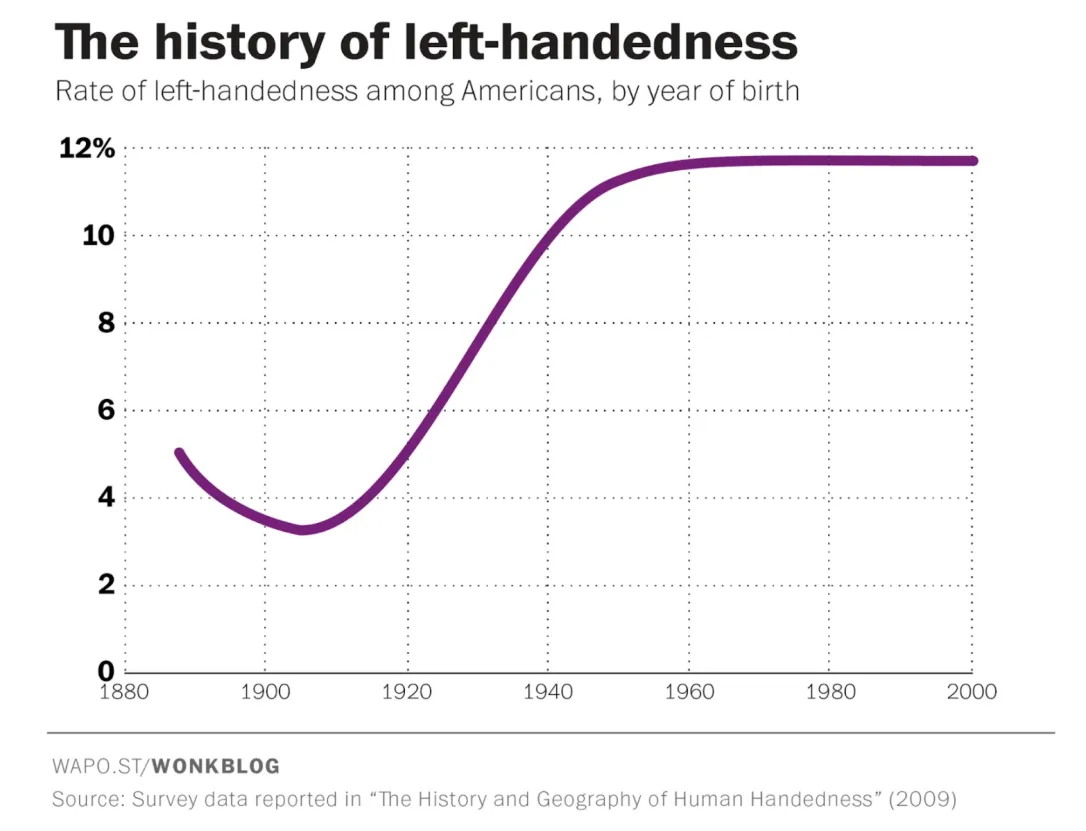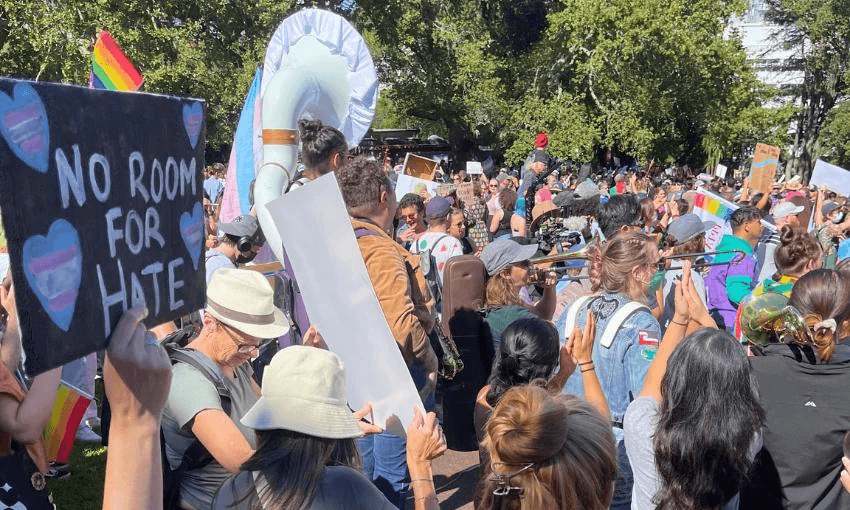New Yale Law report finds Cass Review critically flawed
A new report from the Yale Law School, Yale Medical School, and the Integrity Project (based at Yale Law) was released this week, critically examining the Cass Review, its processes and its findings, and has found it critically flawed.
A new report from the Yale Law School, Yale Medical School, and the Integrity Project (based at Yale Law) was released this week, critically examining the Cass Review, its processes and its findings, and has found it critically flawed. The report is well worth reading - its authors collectively have 86 years of experience in caring for nearly 5000 trans young people, and have published 168 peer-reviewed studies in the field of gender-affirming care. They're well aware of the context we're operating in, making it clear that "if politics continue to interfere with transgender healthcare, clinical services and research in this field may not recover."
It's accessible reading, and examines whether or not the Cass Review calls for a ban on gender-affirming care, considering that England and multiple states in America have cited the Review in care bans (hint: the Review does not call for a ban). It also looks at the processes behind the Review's systematic reviews, how it assessed the evidence base, how it used the data it found, and the links the Review has to anti-transgender disinformation.
The Cass Review did not call for a ban on gender-affirming care, and should not be cited in support of bans
The Review explicitly notes that, “for some, the best outcome will be transition” (p 21) while also acknowledging, as the WPATH Standards of Care and the Endocrine Society Clinical Practice Guidelines do, that gender-affirming medical interventions are not appropriate for all transgender adolescents. This is an essential point, as many who criticize this care inappropriately contend that medical consensus endorses medical transition for any minor seeking care.
The report also finds internal inconsistencies in the Review, where it calls for an individualised assessment of the needs of each trans young person, but then calls for all young people to be a certain age before they can access care. The Review agrees with WPATH and Endocrine Society guidelines and how we treat co-occurring mental health needs, but then speculates wildly about how trans people 'become trans' by consuming too much porn, or by being neurodiverse, or from social media, or from peer pressure.
The key takeaway is this line from the Yale report:
While the Review’s narrative statements often concur with existing evidence-based standards in the field of transgender health, its recommendations—which actually impact people’s access to care—discard these standards and conflict with medical consensus.
The "low quality evidence" argument in Cass is flawed, pseudoscientific, and subjective
The big talking point for the anti-trans lobby post-Cass is the idea of gender-affirming care having "low quality" evidence for the benefits of this care. The Review itself talks about GRADE, the Grading of Recommendations, Assessment, Development, and Evaluation framework, in which evidence is described as high, moderate, low, and very low - but the Review itself does not evaluate the evidence using the GRADE framework. It certainly uses the words "weak" and "poor" a lot - 21 and 10 times respectively, according to the Yale report - but is not using them because they've used GRADE to assess the evidence.
The Review borrows GRADE terminology in repeatedly expressing a desire to see “high quality” evidence dominate the field of transgender health. Thus, the Review falls seriously short in not describing or applying a formal method for assigning evidence quality.
Evidence quality isn't the only realm that GRADE describes as needing to be considered - the other three are balance between evidence and harms, patient values and perspectives, and resource utilisation. The Yale report found that the authors of the Cass Review did not consider the harms of not offering gender-affirming care to a young person with dysphoria, or the "significant psychological pain" that a trans young person experiences when their body goes through unwanted permanent changes. The Review ignored "the consequences for teens who, left untreated, must present to the world a physical appearance that is at odds with their own identity."
In adulthood, these physical effects can be ameliorated to some degree with costly and invasive treatments such as surgery, hair removal, and speech therapy. These treatments do not erase the intervening years of psychological distress. (Emphasis mine)
The Cass Review chose to selectively examine the supposed harms of gender-affirming care, while ignoring the harms of no treatment.
The Review also ignored patient preferences and values - despite engaging with trans young people in focus groups, where they found an overwhelming desire for improved access to care, and for their needs to be taken seriously, the Yale report found that "the Review completely disregards the expressed values and preferences of transgender youth in its most emphatic recommendation, which is to limit care to research settings that do not yet exist."
Mindbogglingly, the Review also held focus groups with a range of healthcare workers, some of them not clinicians, without clarifying what expertise these focus groups hold in the field of trans health. 32% of these focus groups participants agreed that there was "no such thing as a trans child".
Denying the existence of transgender people of any age is an invalid professional viewpoint. The involvement of those with such extreme viewpoints is a deeply concerning move for a document that issues recommendations on clinical care. A guideline that solicits opinions from those who will not acknowledge the condition for which care is sought should not be used.
The Yale report also makes it clear exactly how often "high quality" evidence under GRADE is used in medicine - "86.5% of reviews [across numerous areas of medicine] reported moderate, low, and very low levels of evidence" and "less than 1 in 7 systematic reviews had evidence of high quality evidence for a primary outcome." In fact, "there is no published research showing that evidence quality designations improve patient care". This is not unique to gender affirming care, and the authors of the Yale report make it clear that, despite Dr Hilary Cass stating "I can’t think of any other situation where we give life-altering treatments and don’t have enough understanding about what’s happening to those young people in adulthood," "no other area of pediatrics is held to this standard."
The report examines neonatal care in particular as another area where critical care is provided to children who dearly need it, in an area where the evidence that drives medical decisions is rarely "high quality" as GRADE describes it.
The point is not to compare to the point of destructive criticism. The point is that careful use of the treatment options we have now, with the best evidence we have, defines pediatric care... Children benefit from innovative medical treatments that improve their survival and quality of life. Pediatric care would all but cease if physicians denied treatments for which the evidence base is imperfect.
The Cass Review misrepresents and misinterprets its own data
What should have been a strength of the Cass Review is its access to a huge amount of national health data on trans people via the NHS - they have data on population, demographics, referrals - it should have been a significant contribution to the field of trans health and wellbeing. But, as the Yale report found, "the Review's interpretation and representation of these data are often incorrect."
Another common argument from the anti-trans lobby is the rise in the numbers of people identifying as trans - they label it as "social contagion", something unnatural, something to be quashed. It couldn't possibly be a rise in visibility and acceptance - it's clearly because being trans is cool and popular, a trend sweeping our nations.

I talk about this graph all the time in workshops, particularly at the moment with health professionals. It looks at the rate of left handedness over the last century - it was low, because we forced people to write with their left hands. We stopped, and it increased dramatically, before levelling out at the natural rate of left handedness in the population - because we stopped stigmatising and punishing it, stopped forcing people to fit a mould that was not theirs. It was not social contagion, it was not pornography or neurodivergence or peer pressure - acceptance and inclusion allowed these rates to rise and then level out.
Cass throws this out entirely, arguing that "the exponential change in referrals over a particularly short five-year timeframe is very much faster than would be expected for normal evolution of acceptance of a minority group." This argument bugs me big time, not in the least because the rise in visibility and acceptance has come from a lot of hard work of generations and generations of trans people - not just in the last five years, but in the last five decades and then some.
Thankfully, Yale gets stuck in, pointing out that the Review does not ever define the "normal evolution of acceptance for a minority group" - in fact, there is none, at all.
It's not just that - the Yale report found that referrals were not "exponentially" increasing at all, and that the Cass Review itself admitted that they may have double-counted referrals in 2021/22. In fact, referrals began to level off and even decrease from 2018.
The Review's data also shows exactly how many trans people are referred to care - an estimated only 10% of youth who might benefit were offered a referral.
One thing is abundantly clear: the gap between youth who may benefit from care and those who receive even the first opportunity to consider this care is astronomical. The Review is overly concerned with overtreating this population, but the data are clear that transgender youth in the UK are vastly underserved, just as they are throughout the world.
The Yale report digs deeper into these numbers, and finds that only 178 trans young people in the UK are on blockers through the NHS - 0.0024% of the adolescent population. This process is slow - two years of waiting for an assessment, then only 27% of patients seen are referred to endocrinology, after an average of 6.7 appointments, oten with months between.
This data makes me furious, not in the least because it's become abundantly clear the damage this system, the significant waits to access care, and the absurdly large barriers to even get referred for care are having on trans people in the UK. Since the Review was published, whistleblowers within the NHS have spoken out about the number of deaths on waitlists for gender services, and the steps the NHS took to keep those deaths out of the public eye.
In 2020, the NHS made it more difficult for trans young people to access care after a high court ruled that it was "unlikely" young people could give informed consent for this care. In 2021, the high court overturned that ruling, but the NHS left their restrictions in place.
In the seven years before that ruling, there was one death on the waitlist for the GIDS service for young people. In the three years afterwards, there were 16.
This is the crisis in trans health in England the Cass Review was established to address, and its the crisis in trans health in England it has resolutely refused to engage with. Instead, the Cass Review has been used as justification for further restrictions. How many deaths will it have caused? How long will it be until we find out, with the NHS threatening disciplinary action to those who speak out?
I've been feeling like Cassandra lately, and I'm sure many of us are feeling the same way - it feels so obvious how flawed and politically motivated this is, and yet we watch as mainstream media around the world uncritically engages with the Cass Review as fact, and with the anti-trans lobby as experts with valid opinions.
I've been struggling here at home, too, with the ever-increasing amount of hate, violence, and threats towards trans people and those who work to support us in Aotearoa. It feels like every other week that a rainbow community event has to be cancelled because Destiny Church explicitly threaten violence - the most recent being a drag king storytime in Upper Hutt, cancelled when Brian Tamaki said "if the Mayor and his councillors do not shut this event down, I have instructed our Destiny Church members and ManUp men to shut it down.”
I wrote an opinion piece for the Spinoff yesterday about this, and about the string of violence we've seen on and offline in the last two years in particular. From online rhetoric reaching "genocidal" levels, to a community building being burnt down in an arson, to Action Zealandia storming libraries during community events, to Brian Tamaki preaching "time to kill" and a sitting MP feeling happy and comfortable enough with him to speak alongside him at an explicitly anti-transgender event.
The question I keep coming back to is this: how are we allowing this to keep happening? How is it that a church can simply force events to close by threatening to “shut it down” without repercussions? When will we see action from this government on this group preaching “time to kill”? Will it only be when one of Tamaki’s followers takes his words literally, as he knows they will?
That’s the worry that I – and many other community members – have. I’ve sat across tables with members of my community here in Ōtautahi, people who are also members of the Muslim community, who see the same pattern they saw in the leadup to the attack on March 15th. And the same lack of response from those who ostensibly keep us safe. I’ve been out for 10 years now and have had a pretty lucky and privileged time – this is the most I’ve been concerned for my own personal safety in all that time, and the most worried I’ve been for my communities in the past decade. I don’t want to wait until the worst happens before we see a response. Our communities are in need of protection now.
You can read the full piece here:

Take care, whānau - find joy where you can, celebrate with your communities, share kai, keep together, stay warm. Spring is on its way.

